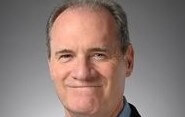Seeking to shore up its reserves following losses stemming mostly from its reverse mortgage program, the Federal Housing Administration (FHA) will likely need an infusion of capital from the U.S. Treasury at the end of the month, the Wall Street Journal reports.
Although officials are yet to determine how much money the FHA will need, some have estimated that it could require more than $1 billion. In April, White House budget officials had projected an agency shortfall of $943 million for the current fiscal year.
The FHA has not required a taxpayer bailout in its 79-year history. The agency, which doesn't originate loans but insures lenders against losses, has been taking steps toward stemming its losses, including increasing mortgage insurance premiums and requiring most borrowers to carry insurance for the duration of their 30-year loans. It has also tightened its oversight of lenders in an effort to ensure loan quality.
In addition, the FHA has seen delinquencies and defaults on the loans it insures drop considerably in the past year, which will also help stem losses. However, tightening lending standards and the increase in insurance fees have resulted in a 4% decline in origination volume. What's more, many borrowers with FHA-backed loans have refinanced into new loans that aren't backed by the agency, thus offsetting gains from recent fee increases.
The FHA's financial problems mostly stem from losses in its reverse mortgage or Home Equity Conversion Mortgage (HECM) program. These losses were incurred when millions of homeowners took out reverse mortgages, opted to take lump sum payments and then ran into financial problems. The agency, which is required by law to maintain reserves equal to 2% of its portfolio, currently has about $32 billion in reserves. An independent actuarial report late last year found the FHA's Mutual Mortgage Insurance Fund operating at a deficit of $16.3 billion.
In August, following passage in the House and Senate, President Obama signed into law the Reverse Mortgage Stabilization Act, which gives the Department of Housing and Urban Development (HUD) the power to make changes to the HECM program without congressional approval.
HUD has worked with the National Reverse Mortgage Lenders Association and the reverse mortgage industry to make changes to the HECM program, including implementing stricter lending standards, establishing mandatory set-asides or escrows for tax and insurance, and capping the amount that borrowers can take out in one lump sum.
Rep. Jeb Hensarling, R-Texas, chairman of the House Committee on Financial Services and author of the proposed PATH Act, which includes measures for FHA reform, issued the following statement today regarding the looming possibility of a government bail out of the agency:
‘Hardworking American taxpayers are sick and tired of having to bail out Washington's failed housing policies, whether it's the nearly $200 billion bailout of Fannie Mae and Freddie Mac or a bailout of the FHA. Reports that the FHA will require its own billion-dollar bailout reinforce the need for the PATH Act, our proposal to create a sustainable housing finance system. The PATH Act not only ends the bailout of Fannie and Freddie, it includes reforms that will help ensure the FHA is solvent. Over the years, the FHA has strayed far from its original mission. It has become the nation's largest subprime lender. It's time to return the FHA to its traditional mission of helping first-time homebuyers and those with low and moderate incomes, and that's exactly what the PATH Act does.’
For more, check out the Wall Street Journal report.










